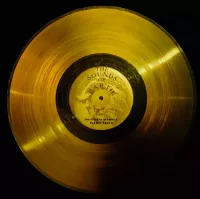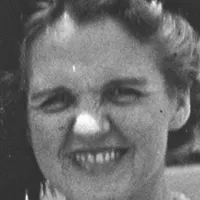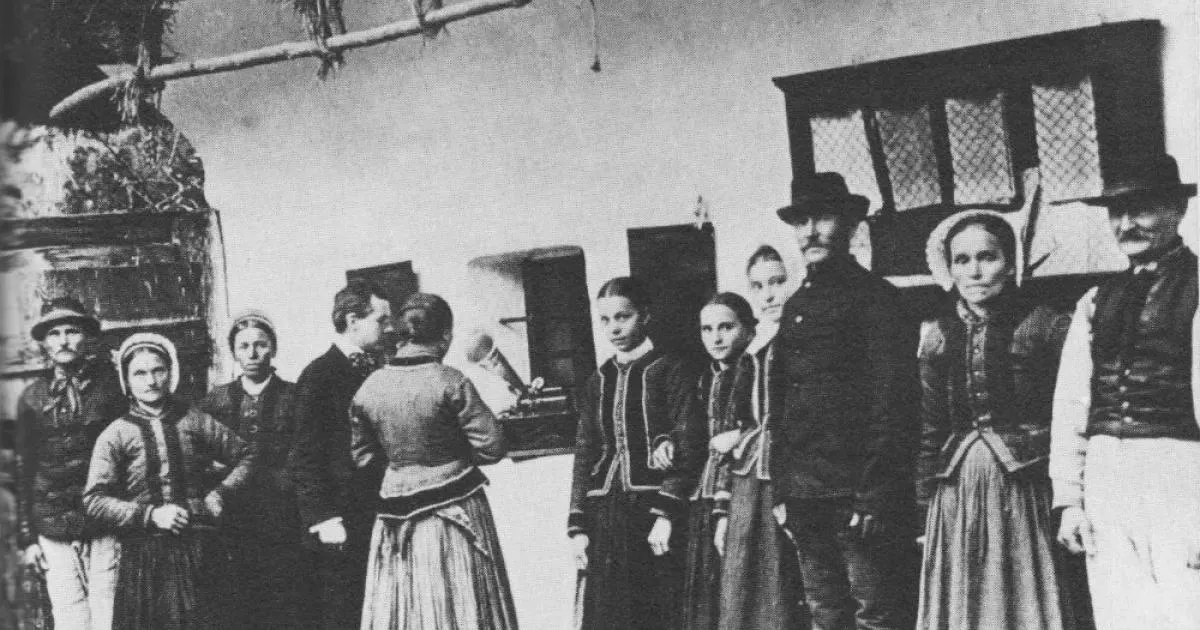Folk music encompasses traditional and contemporary genres, originating from oral traditions and often lacking known composers. It's characterized by its use of traditional instruments, focus on cultural or national identity, generational evolution, and association with folklore. It stands apart from commercial and classical music. The term 'folk music' emerged in the 19th century, although the music's history extends further back.
1906: Isaac Albéniz composes Suite Iberia
From 1906 to 1909, Isaac Albéniz composed Suite Iberia, a piano work reflecting his Spanish heritage.
1909: Isaac Albéniz dies
In 1909, Isaac Albéniz, who produced piano works reflecting his Spanish heritage, including the Suite Iberia (1906–1909), passed away.
1911: John Lomax publishes "Cowboy Songs and Other Frontier Ballads"
In 1911, John Lomax published "Cowboy Songs and Other Frontier Ballads", marking his first major work studying distinctly American folk music and establishing him as a prominent folk music scholar.
1915: Krisjanis Barons publishes Latvian folk songs
In 1915, Krisjanis Barons published the sixth volume of Latvju dainas, a collection of 217,996 Latvian folk songs, contributing to the preservation of Latvian folk music.
1916: Cecil Sharp records Appalachian songs
From 1916 to 1918, Cecil Sharp worked in America, recording traditional songs of the Appalachian Mountains in collaboration with Maud Karpeles and Olive Dame Campbell, becoming a major scholar of American folk music.
1918: Cecil Sharp records Appalachian songs
From 1916 to 1918, Cecil Sharp worked in America, recording traditional songs of the Appalachian Mountains in collaboration with Maud Karpeles and Olive Dame Campbell, becoming a major scholar of American folk music.
1918: Enrique Granados dies
In 1918, Enrique Granados, composer of zarzuela and Danzas Españolas, passed away.
1920: British folk revival ends
Around 1920, the British folk revival, which began approximately in 1890, came to a close.
1922: Jean Ritchie born
In 1922, Jean Ritchie was born in Viper, Kentucky, and became a prominent figure in preserving and recording Appalachian traditional songs.
1927: Carl Sandburg publishes "The American Songbag"
In 1927, Carl Sandburg published "The American Songbag", a collection of songs gathered during his travels, adding a class dynamic to popular understandings of American folk music.
1928: Mountain Dance and Folk Festival founded
In 1928, the Mountain Dance and Folk Festival was founded in Asheville, North Carolina, by Bascom Lamar Lunsford, and is sometimes claimed as the earliest United States folk music festival.
1933: Alan Lomax's recordings made under the auspices of the Library of Congress
From 1933 to 1942, Alan Lomax made recordings under the auspices of the Library of Congress, including sessions with Jelly Roll Morton, Woody Guthrie, Lead Belly, and Muddy Waters.
1934: National Folk Festival established
In 1934, Sarah Gertrude Knott established the National Folk Festival in St. Louis, Missouri, promoting folk music and its role in social goods.
1936: Canadian Broadcasting Corporation (CBC) created
In 1936, the Canadian Broadcasting Corporation (CBC) was created after lobbying by the Canadian Radio League, aiming to promote Canadian music, including traditional music.
1937: National Folk Festival held in Washington, DC
From 1937 to 1942, the National Folk Festival was held in Washington, DC, at Constitution Hall under the sponsorship of the Washington Post.
1942: Alan Lomax's recordings made under the auspices of the Library of Congress
From 1933 to 1942, Alan Lomax made recordings under the auspices of the Library of Congress, including sessions with Jelly Roll Morton, Woody Guthrie, Lead Belly, and Muddy Waters.
1942: National Folk Festival held in Washington, DC
From 1937 to 1942, the National Folk Festival was held in Washington, DC, at Constitution Hall under the sponsorship of the Washington Post.
1946: Alan Lomax begins independent archive
In 1946, Alan Lomax began his independent archive of recordings, which was later digitized and offered by the Association for Cultural Equity.
1946: Manuel de Falla dies
In 1946, Manuel de Falla, who incorporated Andalusian flamenco influences into his works like Nights in the Gardens of Spain and Siete canciones populares españolas, passed away.
1954: Sidmouth Festival begins
In 1954, the Sidmouth Festival began.
1959: Newport Folk Festival begins
In 1959, the Newport Folk Festival began near Newport, Rhode Island, running most years until 1970 and then from 1985 to the present.
1959: Grammy Awards create "Folk" category
In 1959, the popularity of "contemporary folk" recordings led to the creation of the "Folk" category in the Grammy Awards, marking recognition of the genre.
1962: Philadelphia Folk Festival begins
In 1962, the four-day Philadelphia Folk Festival began, sponsored by the non-profit Philadelphia Folksong Society, hosting contemporary and traditional artists.
1965: Cambridge Folk Festival begins
In 1965, the Cambridge Folk Festival began in Cambridge, England, noted for its wide definition of folk musicians.
1970: Mullā Mohammed Jān spreads to Afghanistan and Iran
Around 1970, the song Mullā Mohammed Jān spread from Herat to the rest of Afghanistan, and Iran where it was recorded, becoming popular due to its repetitive refrain and predictable structure.
1970: Grammy Awards change "Folk" category
In 1970, the Grammy Awards dropped the "Folk" category in favor of "Best Ethnic or Traditional Recording (including Traditional Blues)", which shows the evolution of folk music recognition.
1970: Newport Folk Festival runs until 1970
The Newport Folk Festival ran most years from 1959 until 1970.
1974: Isabelle Mills writes about Canadian folk song
In 1974, Isabelle Mills wrote that knowledge of Canadian history is essential in understanding the mosaic of Canadian folk song, highlighting the influence of European and Anglo-Saxon settlers.
1985: Newport Folk Festival resumes
In 1985, the Newport Folk Festival resumed after a hiatus, continuing to the present with an attendance of approximately 10,000 people each year.
1986: Lunenburg Folk Harbour Festival Inauguration
In 1986, the town of Lunenburg, Nova Scotia, started hosting the Lunenburg Folk Harbour Festival.
1987: Grammy Awards distinguishes folk recording
In 1987, the Grammy Awards created a distinction between "Best Traditional Folk Recording" and "Best Contemporary Folk Recording", further differentiating the genre.
1997: Stan Rogers Folk Festival Inauguration
In 1997, Canso, Nova Scotia, began hosting the Stan Rogers Folk Festival, which takes place annually during the last weekend of July.
January 2012: Lomax archive to be released in digital form
In January 2012, the American Folklife Center and the Association for Cultural Equity announced the digital release of Alan Lomax's vast archive of recordings from 1946 and later.
March 2012: Lomax's recordings made available online
As of March 2012, approximately 17,400 of Alan Lomax's recordings from 1946 and later were made available free online, digitizing his independent archive.
2015: Jean Ritchie dies
In 2015, Jean Ritchie, a key figure in preserving Appalachian traditional songs, passed away, leaving behind a legacy of classic recordings and compilations.
Mentioned in this timeline

Washington D C is the capital city and federal district...
North Carolina is a Southeastern U S state the th-largest...
Canada is a North American country the second largest in...

Music is a cultural universal involving the arrangement of sound...
Russia officially the Russian Federation spans Eastern Europe and North...

Books are a means of storing information as text or...
Trending

6 minutes ago Isaiah Joe to start for Thunder; Williams comes off bench, joins first unit.

6 minutes ago Kirsty Coventry navigates political challenges as IOC leader, eyes Los Angeles Olympics.

7 minutes ago Iowa Hawkeyes Prepare for Michigan, Celebrate Seniors; Freshman Shines Against Purdue.
2 days ago Cavs' Health Improves: Wade's Return Boosts Playoff Hopes; Mobley's Status Questionable
7 minutes ago Arsenal faces Tottenham; Arteta dismisses 'choke' label; Gyökeres key player.

1 hour ago Eileen Gu Dominates Halfpipe, Secures Gold and Sixth Olympic Medal in Career.
Popular

Jesse Jackson is an American civil rights activist politician and...

Barack Obama the th U S President - was the...

Bernie Sanders is a prominent American politician currently serving as...

Ken Paxton is an American politician and lawyer serving as...

Michael Joseph Jackson the King of Pop was a highly...
WWE Raw a professional wrestling television program by WWE airs...


